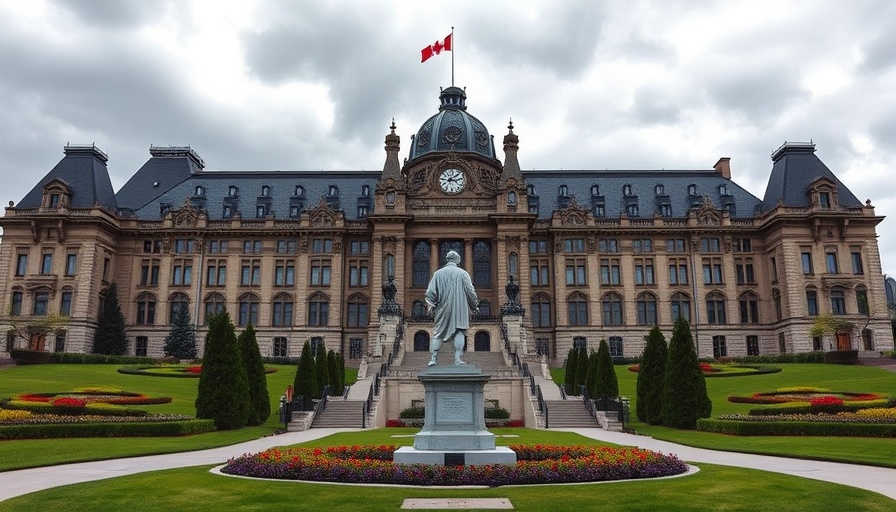
New B.C. Law Sparks Debate on Local Governance
The recent passage of the Eligibility to Hold Public Office Act by the New Democratic Party (NDP) government in British Columbia marks a significant shift in the landscape of local governance. Under this law, no Member of the Legislative Assembly (MLA) is permitted to simultaneously hold a position in local government, a change that is met with pushback from the BC Conservative Party, particularly from MLAs with dual mandates.
What the Law Entails and Its Immediate Impact
This legislation forces sitting MLAs, such as Misty Van Popta and Korky Neufeld, to resign from their local government positions if they wish to remain in the provincial legislature. This is particularly contentious as both MLAs have argued that their dual roles serve their constituents effectively. Van Popta emphasized this point during her interactions with voters, stating that she was transparent about her intentions in holding both offices temporarily to avoid triggering costly byelections. Yet, her constituents and local issues could suffer as the law eliminates the option for current representatives to fulfill such dual roles.
The Conservatives' Response: Claims and Counterarguments
Van Popta and Neufeld feel that the NDP has specifically targeted them through this legislation, aiming to demolish their political careers and diminish Conservative influence in municipal governance. Critics of the law argue that it fundamentally undermines local representation because a combined understanding of both provincial and local issues can enhance the support provided to constituents.
In response, the NDP maintains that the new law promotes accountability and ensures that legislators can focus on their provincial roles without the distractions of local office. This narrative of accountability is particularly poignant as public trust in political institutions waxes and wanes. However, the lack of this flexibility raises questions about representation, especially in smaller municipalities where dual roles have been customary.
Public Opinion: A Mixed Bag
Public opinion seems divided on this issue. Some community members express support for the legislation, arguing it is about time to prioritize government integrity and concentrate the efforts of elected officials in respective roles. Others, however, see it as an unnecessary burden on political practices that have operated effectively over time.
An engagement with local community leaders shows that this law could lead to complications in how governance is managed at the local level. For example, the disappearance of an MLA with intimate knowledge of regional concerns might lead to misunderstandings or neglect of local priorities in the provincial agenda.
Historical Context: Dual Mandates in Government
Historically, holding dual mandates is not a new concept in British Columbia or Canada more broadly. This practice allowed for a melding of local and provincial governance, often deemed beneficial during municipal budget planning and crisis management. Not only were MLAs able to represent local interests in provincial discussions, but their involvement led to more nuanced perspectives on local issues brought to the legislative floor.
What Lies Ahead: Future Predictions and Political Landscape Changes
As the BC Conservatives rally against this law, it may create a schism in the political landscape. It’s crucial to observe how the newly instituted regulations will affect the dynamics of local funding, advocacy for district projects, and the overall efficiency of provincial decision-making processes. If the law results in heightened friction between local and provincial politics, it could lead to broader changes, such as reevaluating the legislative power balance in BC.
Community Reaction and the Importance of Engagement
This legislative change encourages active community engagement and discussions on local governance practices. Citizens are urged to communicate their thoughts and concerns to their representatives actively. Whether in support or opposition, these dialogues will shape future governance as public officials reconsider the necessity and effectiveness of new laws regulating the eligibility of public office-holders.
As British Columbia continues to navigate this important change, communities must remain both informed and engaged to ensure their voices influence the evolving political dynamics.
 Add Row
Add Row  Add
Add 




 Add Row
Add Row  Add
Add 

Write A Comment